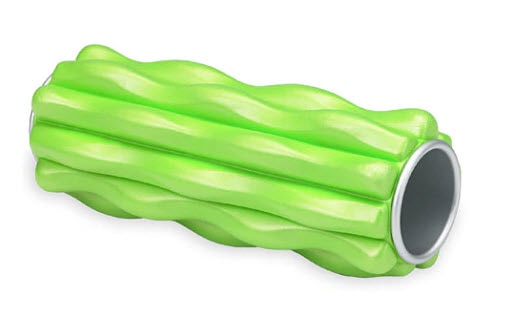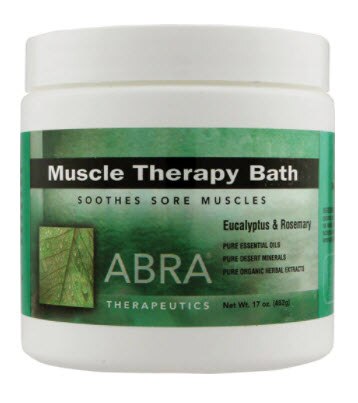Rest days and the process of recovery are essential to your results, no matter how you train. From the elite level athlete to the new gym goer, recovery work allows you to see the results from all your hard work.
During exercise, muscle tissue is broken down, glycogen stores are depleted, and nutrients are used up to fuel your activity. Continuously stressing your body will leave you drained and unable to make progress. When muscle tissue is torn during exercise, it needs time to repair, leading to muscle growth and strength increases.
What’s more, without proper recovery, you may end up experiencing the effects of overtraining. Overtraining can suppress your immune system, leading to illness, interrupt your sleep quality, and cause undesirable mood changes, among other side effects.
If you’re unsure how to gear down for proper recovery days, read on for tips on nutrition, recovery-safe activities and other lifestyle choices you can make to increase your chances of staying healthy and seeing results from your exercise routine.
How to refuel on rest days
Just as with your pre and post-workout nutrition, what you eat on your rest days also matters. Choosing specific nutrients can help improve your body composition, recovery, and performance levels.
The main goals for workout recovery are to:
- Replenish your store of energy (glycogen)
- Increase your lean muscle mass and perhaps decrease fat mass
- Repair the damage caused by your exercise session
The two critical focuses for your recovery day should be protein and carbohydrates. Protein helps prevent the breakdown of the protein in your muscles and helps to build your muscles bigger and stronger after training.
Carbohydrates help shuttle nutrients into your cells through insulin transport and help replace muscle glycogen used during training.
When it comes to adding specific nutrients and supplements, a few can be very beneficial for recovery.
L-Tyrosine
The stress from exercise can deplete our catecholamines, which are neurotransmitters. These catecholamines are adrenaline, noradrenaline and dopamine. Supplementing with L-tyrosine can help replenish our catecholamines because it provides raw materials our body needs to make them.†
Try: Vitacost L Tyrosine Capsules
Adaptogens
Adaptogens are plants that offer protective effects against stress. Stress hormones can eat away at your muscle and prevent your body from being able to recover appropriately. Regularly taking adaptogens can help lessen the effects of stress from your physical activity. Taking adaptogens on recovery days can fight fatigue and put your body in the right state to recover.†
Try these adaptogens:
Magnesium
Magnesium is a critical player in muscle function. Studies have shown that supplementing with magnesium helps support exercise performance. Highly active people are often depleted of magnesium.†
Magnesium also helps with the function of your heart rate, blood pressure and oxygen uptake. Some other studies have shown that magnesium supports muscle performance, including grip strength, lower leg power, rotation and jumping performance, among other benefits†
Magnesium helps, along with ATP in your body to produce muscle contraction. Since intense exercise can deplete you of magnesium stores, supplementing with magnesium on recovery days is wise.
Iron
Intense exercise increases your body’s demand for iron-rich red blood cells. When you exercise, your body uses up more iron and taps into your iron reserves. If you do not get enough iron in your diet, your energy levels and performance will suffer. Especially for female athletes, iron supplementation may help reduce fatigue.†
Omega-3s
Omega-3 long-chain polyunsaturated fatty acids have been shown to support recovery of muscle performance and reduce post-exercise soreness. The muscle damage caused by exercise causes inflammation and can lead to soreness. Studies show that supplementing with omega-3 fatty acids can lower soreness and optimize recovery.†
Try: Vitacost RedKrill Ultra Omega-3
Recovery exercises to try
Foam rolling
Foam rolling is a form of myofascial release which can help reduce muscle soreness and improve recovery. Try foam rolling your entire body on your recovery days as a way to boost blood flow and release tension.
Try: Gaiam Foam Roller
Walking
Being completely sedentary on your recovery days is worse for your results. Moving your body increases blood flow bringing nutrient-rich blood and oxygen to your muscles. Activities like walking will not further damage your muscles and allow for better recovery.
Swimming
Swimming is another excellent low-impact option for increasing blood flow and still staying active during your recovery days. Additionally, the cool water may have further benefits for muscle repair.
Yoga
Yoga is a low-impact exercise that can increase your stability and balance, helping to improve your workouts. It is a recovery-safe option that will increase blood flow while avoiding further damage to your muscles as long as you choose a gentle form of yoga.
Mobility work
Mobility work is an often overlooked aspect of training that everyone should focus on. Mobility is the range of motion through a movement while remaining stable. Avoiding recovery work can lead to injury. Recovery days are the perfect time to address your mobility issues.
Additional recovery methods
Other methods of recovery include the use of tools or techniques such as the following:
Massage gun
Massage guns allow you to receive the benefits of professional deep tissue massage from home. They can reduce post-exercise muscle soreness by increasing the blood flow to your muscle tissue and reduce lactic acid buildup. You will get additional benefits from the vibration aspect of a massage gun.
Professional sports massage
In studies, massage is shown to significantly improve pain, fatigue, and stress levels after exercise. Sports massage can increase endorphins and reduce cortisol levels, a stress hormone that gets in the way of optimal recovery. Sports massage also reduces creatine kinase, interleukin-6, and c-reactive protein, leading to muscle soreness, fatigue, muscle damage, and inflammation.
Cold showers
Cold showers help to speed recovery after exercise in a few ways.
- Boosts skin’s natural moisture barrier better than hot water, helping to replenish hydration after sweating.
- Alternating hot and cold water opens your blood vessels allowing for better blood flow and better muscle repair.
- Improves recovery rate by increasing glutathione
- Stimulates your nervous system by inducing the hormetic stress response, which enhances mood and physiological functioning.
- Cold showers have been shown to increase white blood cell count in your body, boosting your immune system—which may help protect you from the immune-suppressing effects of overtraining.
Work these recovery methods into your routine
As with any changes to your routine, you’ll have the best results if you add one or two new habits and build them slowly over time. Choose a recovery method for your diet, movement, and lifestyle and work it into your recovery days. Don’t forget that working out every day without recovery can impede your results.
If you currently perform intense activity every day, try replacing one of your sessions with yoga, walking or mobility work. Slowly add more recovery work into each day to increase your results, prevent injury, and decrease stress. Your body will thank you.
†These statements have not been approved by the Food and Drug Administration. These products are not intended to diagnose, treat, cure or prevent disease.


 Gaiam Restore Mini Muscle Roller
Gaiam Restore Mini Muscle Roller Abra Therapeutics Muscle Therapy Bath Eucalyptus & Rosemary
Abra Therapeutics Muscle Therapy Bath Eucalyptus & Rosemary